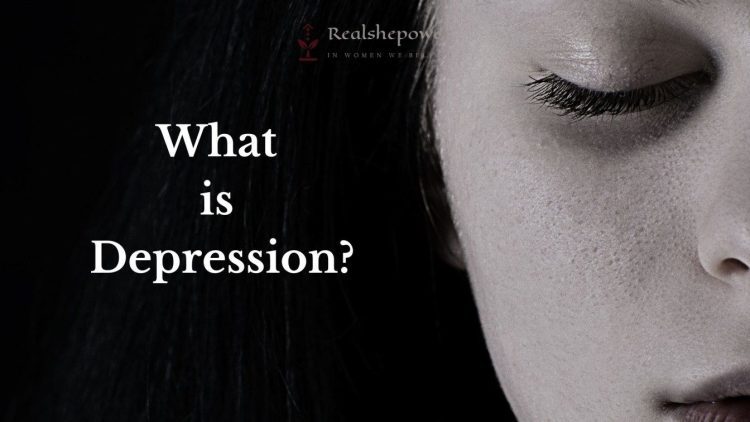What Is Depression?


Depression is the world’s largest cause of disability. Nearly 10% of adults in the United States suffer from depression. However, because it is a mental disorder, it might be far more difficult to comprehend than, example, high blood pressure. The distinction between having depression and simply feeling depressed is a common cause of confusion. Almost everyone experiences depression from time to time. A heart break, job loss, or a disagreement can all trigger feelings of despair. Sometimes there isn’t even a trigger. It just appears out of nowhere. Then things change, and those melancholy sentiments fade away.
Clinical depression, on the other hand, is a medical disorder that won’t go away just because you wish it would. It lasts for at least two weeks and greatly impairs one’s capacity to work, play, or love.
What are the top 5 symptoms of depression?
- A depressed mood,
- loss of interest in activities you’d typically enjoy,
- changes in appetite,
- feeling worthless or excessively guilty,
- sleeping too much or too little,
- poor focus,
- restlessness or slowness,
- loss of vitality,
- or recurring suicidal thoughts.
They are all indications of depression. According to psychiatric guidelines, you qualify for a diagnosis of depression if you experience at least five of these symptoms.
Depression also manifests physically within the brain. First and foremost, there are visible alterations with the naked eye and X-ray vision. Smaller frontal lobes and hippocampal sizes are among them. On a smaller scale, depression is linked to the abnormal transmission or depletion of certain neurotransmitters, particularly serotonin, norepinephrine, and dopamine, as well as blunted circadian rhythms, or specific changes in the REM and slow-wave parts of your sleep cycle, and hormone abnormalities, such as high cortisol and thyroid hormone deregulation.
What Causes Depression?
Sadly, neuroscientists do not yet have a clear picture of what causes depression. It appears to be caused by a complicated interaction between genes and the environment, but they don’t have a diagnostic tool that can predict where or when it will appear. Because depression symptoms are intangible, it’s difficult to tell if someone who appears to be fine but is actually hurting.
According to the National Institute of Mental Health, the average person suffering from a mental disease takes more than ten years to seek help.
However, there are highly successful treatments.
How To Cure Depression?
Medications and treatment work together to increase brain chemicals that help in curing depression. In severe situations, electroconvulsive therapy, which is similar to a controlled seizure in the patient’s brain, can be quite beneficial. Other intriguing treatments, such as transcranial magnetic stimulation, are also being researched.
So, if you know someone who is depressed, kindly advise them to look into some of these possibilities. You might also offer to assist with specific chores, such as researching local therapists or compiling a list of questions to ask a doctor. These first steps may appear impossible to someone suffering from depression. If they feel guilty or humiliated, remind them that depression, like asthma or diabetes, is a medical disease.
It is not a weakness or a personality feature, and they should not expect to simply get over it any more than they could get over a broken arm.
If you haven’t experienced depression, don’t make comparisons. When compared to the typical, transient sensations of grief, people suffering may feel guilty for struggling. Even openly discussing depression can help. For example, studies show that questioning someone about suicidal thoughts lessens their chance of suicide. Open dialogues about mental illness serve to reduce stigma and make it easier for people to seek care.
